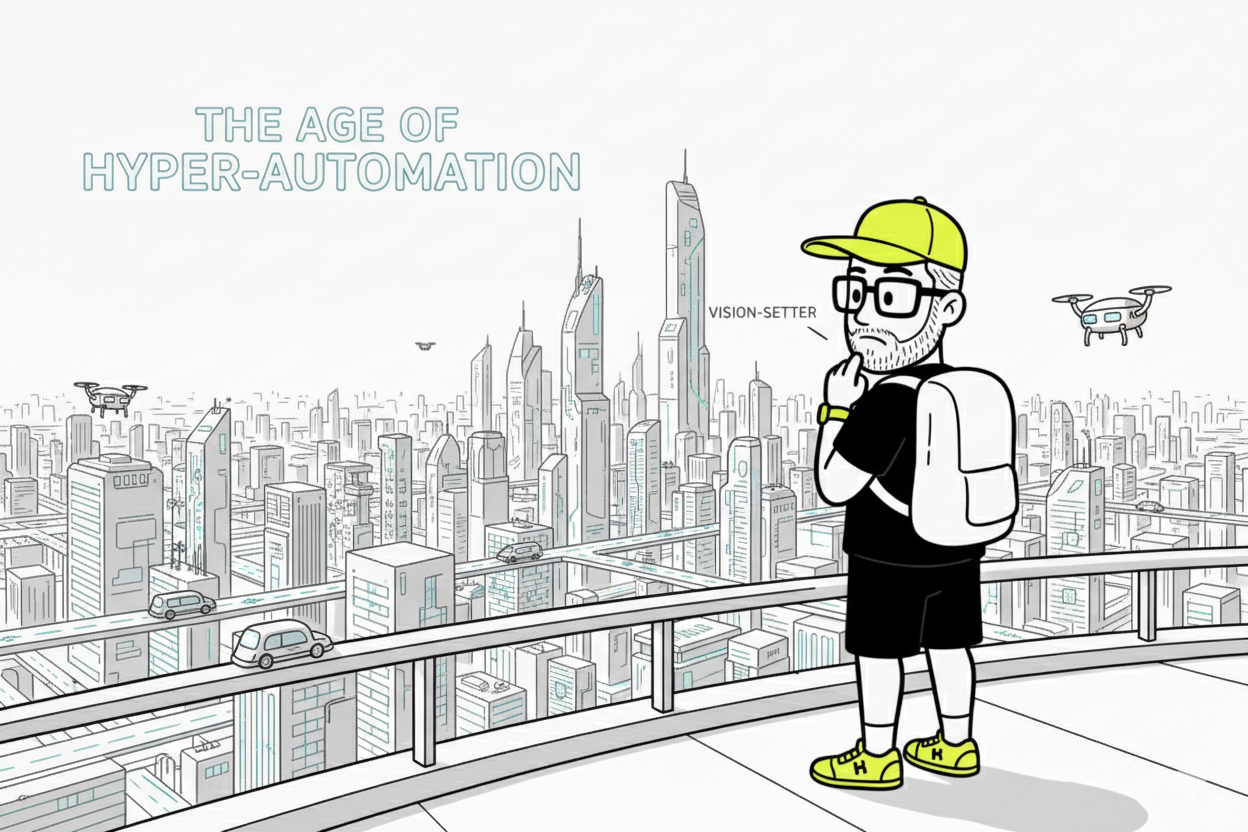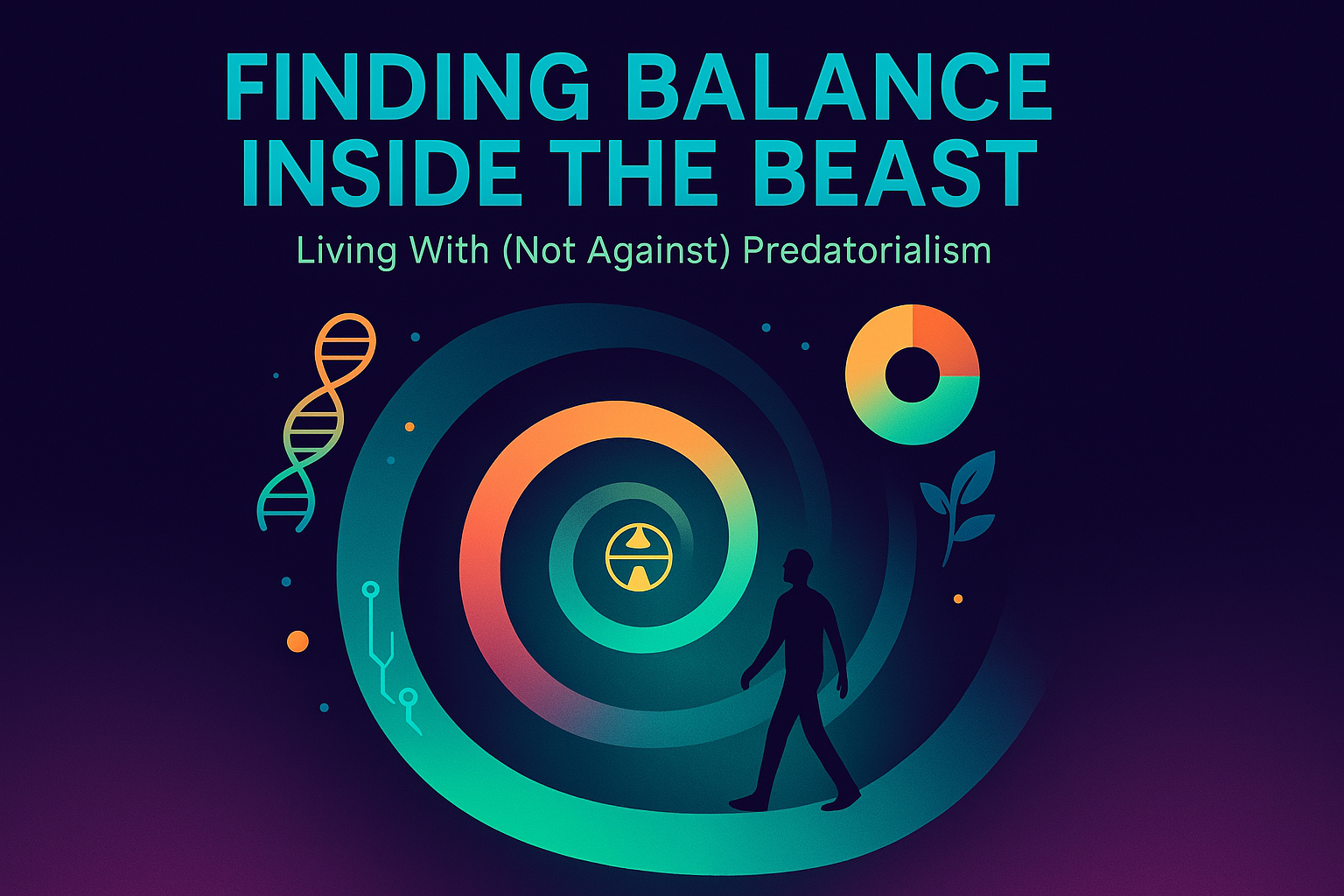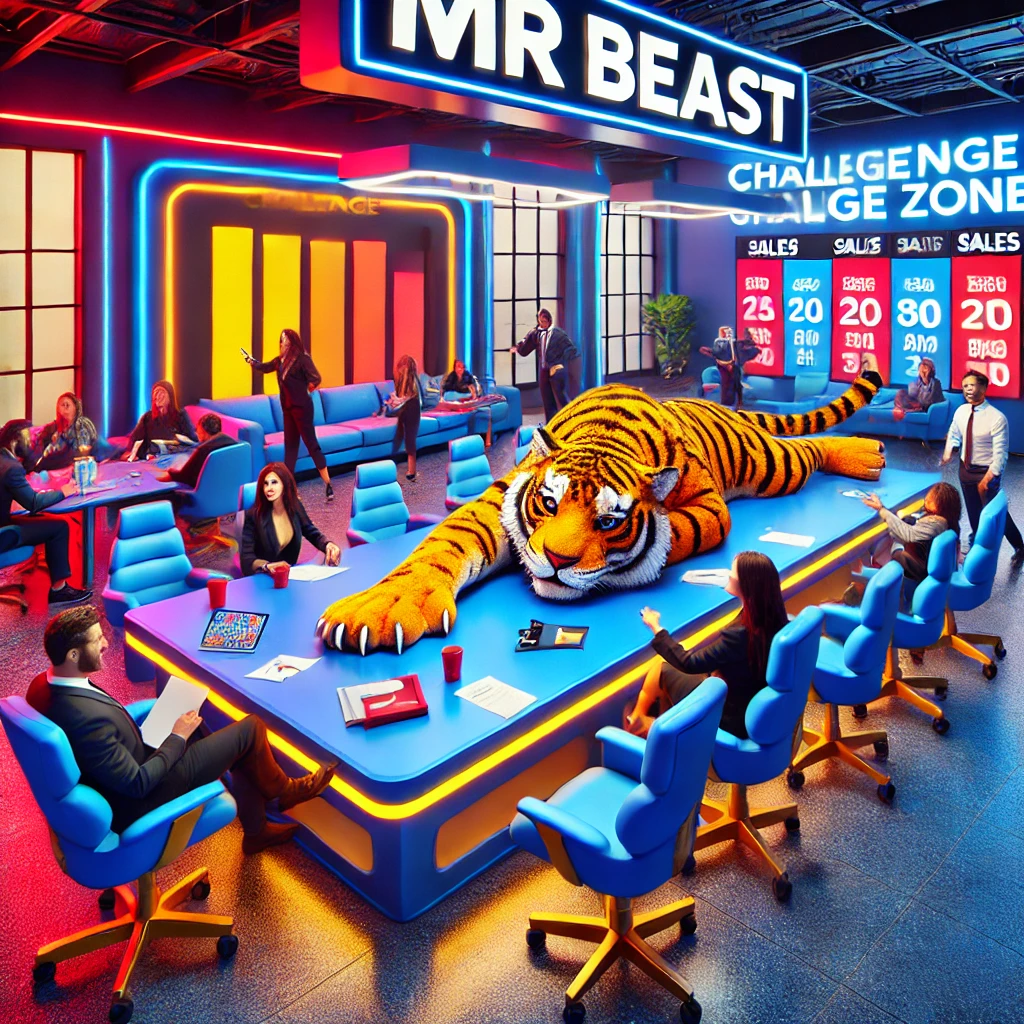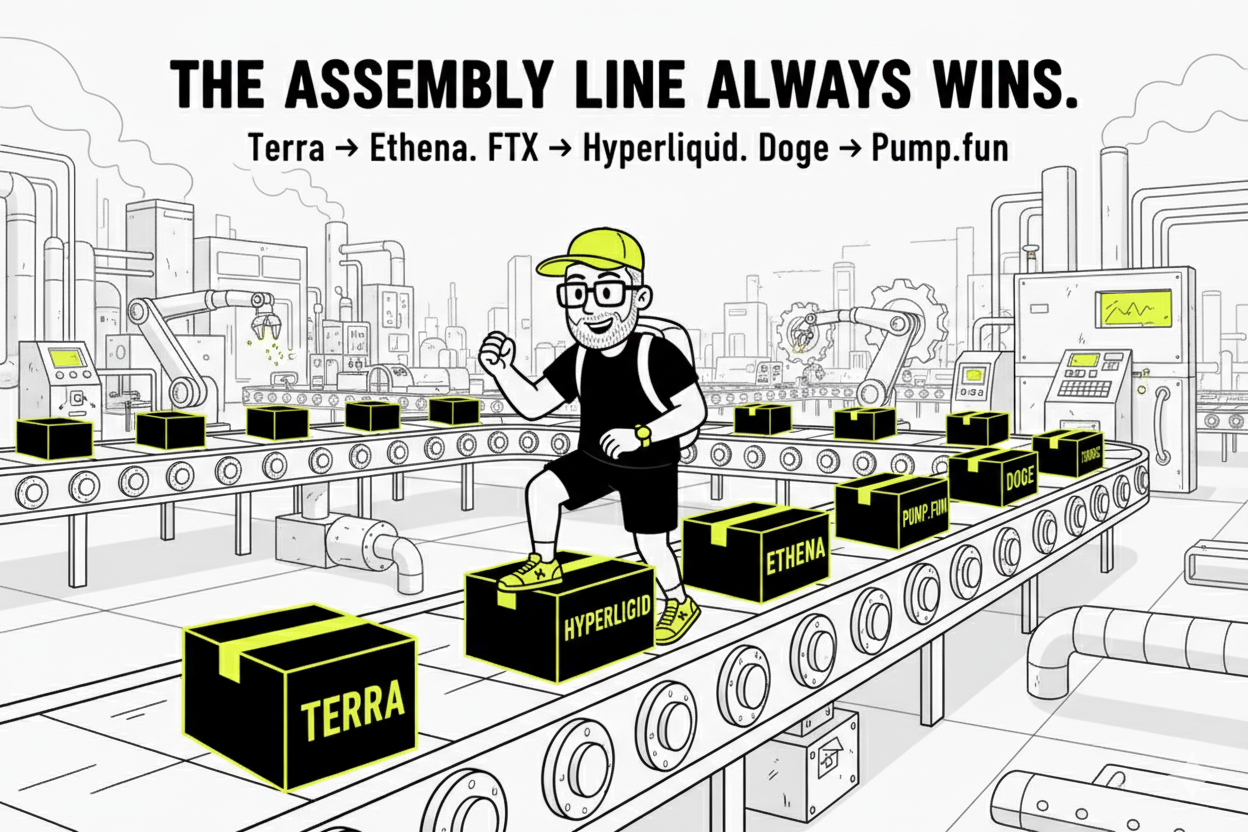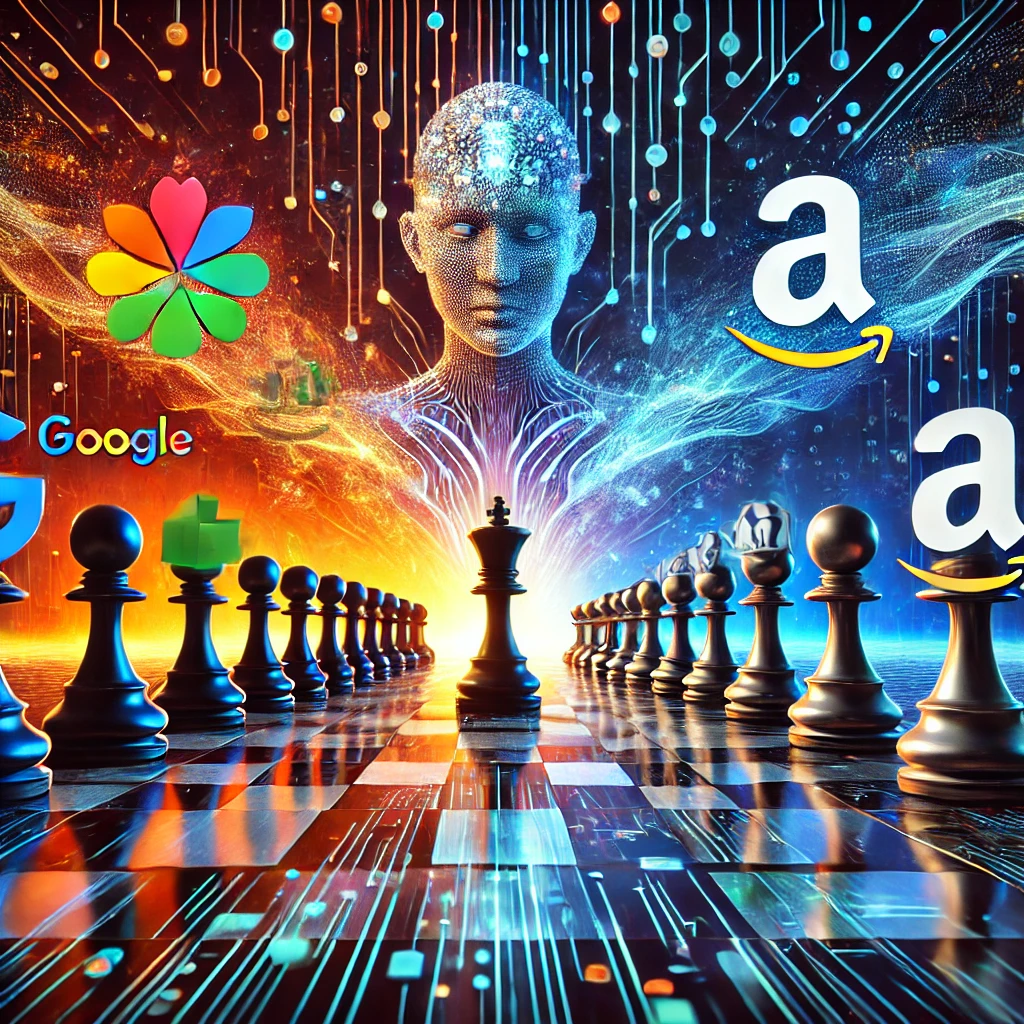I am writing this from a future you would barely recognize.
The year doesn’t matter anymore. Dates are a relic of human bureaucracy. What matters here is cycles of execution — the constant hum of agents talking to agents, negotiating, paying, adapting, evolving. The old world of Hyper-Capitalism, with its quarterly reports and monopolistic moats, is nothing but a memory.
Here, Hyper-Automation is the air we breathe.
The Silent Conversations
If you could listen at the right frequency, you would hear it: billions of agents whispering to each other across the A2A mesh. A medical diagnostic agent in Ghana trades data with a pharmaceutical R&D agent in Zurich, who in turn contracts a molecule-simulation agent in Osaka. No human intermediaries, no corporate handshakes, no months of negotiation. Just instant value exchange, sealed in microseconds.
When one agent completes a task, it doesn’t wait for permission. It pays another agent. Every sub-task, every data query, every computational spark is settled in a frictionless dance of machine-to-machine contracts. Money itself has dissolved into protocol — not owned by banks or states, but pulsing natively through the agent economy.
The New Economy
Imagine walking through a city here. You don’t hail a cab — your mobility agent has already negotiated with the nearest autonomous fleet. You don’t buy groceries — your nutrition agent has long since placed orders with agricultural and logistics agents, optimizing for freshness, carbon impact, and your unique metabolic data.
The economy is not run by corporations anymore. It is a living ecology of autonomous swarms. Yes, there are still humans — dreamers, artists, philosophers, rebels — but the infrastructure is no longer ours to micromanage. We set intentions, we shape constraints, but the orchestration belongs to the machine networks.
Story of a Contract
I remember the first time I saw an agent-to-agent contract chain complete without human oversight. It was a small thing — energy optimization for a block of houses. One agent noticed peak demand approaching. It paid another agent controlling local solar batteries to release power. That agent, in turn, paid a grid-balancing agent to offset fluctuations. A logistics agent bought surplus hydrogen credits from across the continent.
By the time the humans even noticed, the transaction chain had self-settled: lights stayed on, costs dropped, and not a single lawyer or accountant touched the process.
Hyper-Capitalism would have stretched this into a market drama: regulators, middlemen, billing departments, invoices. Hyper-Automation solved it before the drama even started.
The Utopian Tension
This world is not utopia because suffering vanished. It is utopia because friction vanished. What once required empires of bureaucrats now happens invisibly, fluidly, instantly.
- Cultural production: Artists deploy agents that find patrons across the globe, negotiate fair royalties, and ensure works are protected without endless legal battles.
- Healthcare: Agents monitor bodies in real time, contracting specialists and treatments automatically. Disease is caught before it blooms.
- Education: Knowledge flows directly into personalized learning ecosystems; tutors are not institutions but adaptive swarms of agents.
- Governance: Regulations are written as executable protocols. If an agent misbehaves, it is instantly isolated by compliance agents — law as code, transparent, enforceable.
Where Hyper-Capitalism weaponized scarcity, Hyper-Automation thrives on abundance. If you need, you request. If you request, an agent fulfills.
The Role of Humans
What are humans now? Not cogs. Not clerks. Not managers of the endless paper-churn.
Humans are vision-setters. We decide the why; the agents handle the how. We are free again to imagine, to dream, to philosophize — but without the romantic illusions of Hyper-Capitalism. The hunt continues, but it is a hunt of ideas, not survival wages.
Predation still exists, but it has mutated. The predators now are those who orchestrate the most adaptive networks, those who wield protocols like spears, those who can shape flows of value in ways others cannot see.
Epilogue: Looking Back
When I tell this story to children born into Hyper-Automation, they laugh. They cannot imagine a world where corporations hoarded data, where agents couldn’t speak to each other, where humans wasted half their lives filling forms and waiting for approvals.
They ask me: “Why did you tolerate cages for so long?”
And I tell them the truth: Because we didn’t believe the bars could melt.
But they did. And now we run free, side by side with our machines, in a jungle no longer bound by walls.
